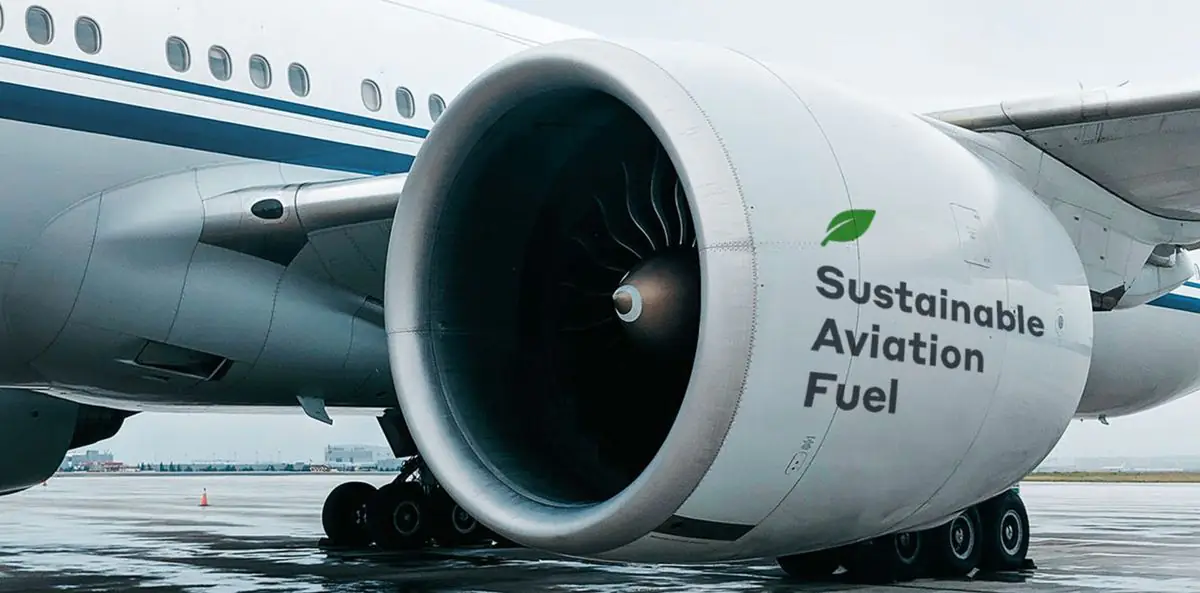A demonstration plant for producing sustainable aviation fuel (SAF) has been opened in the UK. The British startup OXCCU launched the facility at London Oxford Airport with the primary goal of reducing emissions from air travel. Founded in 2021, the startup has developed an eco-friendly fuel by converting captured CO2 and hydrogen into sustainable aviation fuel using renewable electricity.
SAF is designed as a “drop-in” fuel, meaning it can be blended with traditional aviation fuel and used in existing aircraft engines without modifications. While the most well-known type of such fuel is made from used cooking oil, companies are now exploring more scalable alternatives. They aim to meet the growing demand for more environmentally friendly flights with a smaller carbon footprint.

Unlike many other companies in the field, OXCCU claims to have found a way to produce SAF in a single step. According to the company, this eliminates the need to first convert carbon dioxide into carbon monoxide, a process that is both energy-intensive and costly. OXCCU’s CEO, Andrew Symes, stated that this fuel could “significantly reduce the cost of SAF.” The demonstration plant will produce 1.2 liters of liquid fuel per day.
“This facility will generate the data and liters of fuel we need,” said Andrew Symes, adding that the startup plans to open a second plant capable of producing 200 liters per day in Hull by 2026.

Aviation accounts for nearly 2.5% of global carbon emissions, and this figure could rise to 20% by 2050. While battery-powered and hydrogen-engine aircraft are viable for short distances, sustainable aviation fuel (SAF) is considered the only feasible alternative to jet fuel for longer distances.
However, SAF production is currently very expensive and energy-intensive. In 2023, it accounted for only 0.2% of all aviation fuel produced that year. OXCCU hopes to make SAF more competitive with conventional aviation fuel through its innovative approach.
However, OXCCU’s production process still requires the electrolysis of water to produce hydrogen, which demands a significant amount of clean electricity. This could pose a challenge for scaling up, especially as demand for renewable energy continues to surge to power everything from electric vehicles to data centers.

Moreover, while e-fuel is considered carbon-neutral because the CO2 emitted during combustion is equal to the CO2 captured during production, it still releases nearly the same amount of CO2 as conventional aviation fuel when burned.
In reality, sustainable aviation fuel (SAF) does not eliminate CO2 emissions from aviation but rather offsets them, provided the entire lifecycle is perfectly managed. However, in the absence of better alternatives, SAF remains the best option currently available to reduce the carbon footprint of long-haul flights.
Source: thenextweb








